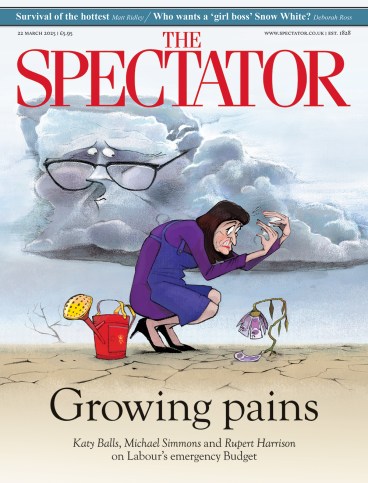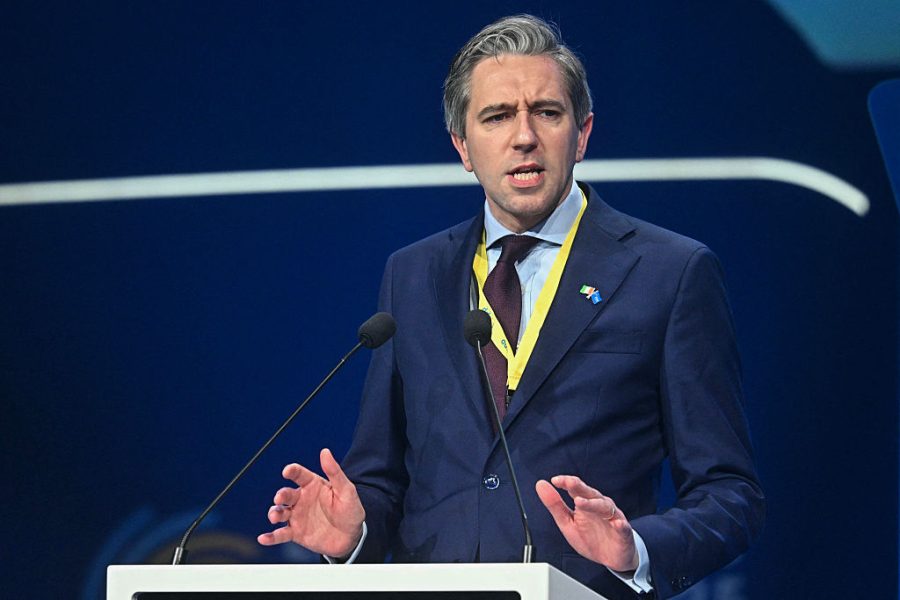
There is a lot of death in the latest, and potentially last, book on boxing by the South African journalist Donald McRae. In less than two years he loses his sister, both his parents and his mother-in-law. To cope with the trauma he returns to the sport that has sustained his life and work for 30 years. But when he reimmerses himself in boxing he does not like what he sees. He finds a sport where bouts are controlled by gangsters; where famous boxers dope and lie about it; where fights still have inadequate safety protocols; and where the centre of power has shifted from Las Vegas to Riyadh, lured by Mohammed bin Salman’s money. Each of these trends, McRae believes, knits boxing and death closer together. ‘I want boxing to sweep me away from real life,’ he confesses. Instead, its sickness brings more tragedy to his door.
Boxing’s lack of structure makes it a challenging sport to write about. There are no seasons to tether it. Career arcs are wildly unpredictable. In The Last Bell, McRae adds to these complications by mixing the narratives of two sets of boxers. Leaning on his material as a ringside reporter for the Guardian, he tells the stories of the biggest names of the past decade: Tyson Fury, Oleksandr Usyk, Anthony Joshua and Canelo Alvarez. His accounts of their bouts are characteristically riveting. But he also gives space to a second group of fighters. These are men McRae is drawn to as people, and their trust in him results in an unusual and fascinating level of access.
Among them are a British cruiserweight, Isaac Chamberlain, towards whom McRae feels a strong sense of paternalism. Chamberlain is the archetypal fighter for whom the boxing gym provides the discipline and structure he is missing. His talent and dedication help him to escape from a life of running drugs and dodging knife-fights in Brixton. But there remains something unfortunate about him. For all that boxing offers him a better future, nothing comes easily. Relatives rip him off, his mental health is precarious and his career lacks a steady hand to guide it.
McRae also forms a bond with Regis Prograis, an American light welterweight. A voracious reader, Prograis contacts McRae, having enjoyed one of his books. Like Chamberlain, boxing offered Prograis a rescue. His early life was washed away by Hurricane Katrina. He sees himself as a historian: absorbing the wisdom of his predecessors is an essential part of his fight preparation.
The athlete at the heart of The Last Bell, and to whose family and friends the book is dedicated, is one whom McRae never manages to meet. Patrick Day came to boxing in very different circumstances to Chamberlain and Prograis. The son of a doctor and a UN worker, he was known at school as ‘Straight A Day’, since he got straight As in everything. ‘He didn’t look or talk like an ordinary boxer’, which was enough to pique McRae’s curiosity. But before McRae could make his acquaintance, Day was beaten to death during a bout in Chicago. That made him the fourth of five boxers to be killed within five months in the second half of 2019. McRae is even-handed in describing the event and its aftermath. He interviews Day’s coach, trainer and best friend, all of whom are evidently devastated. He gives space to the social media post left by his opponent, Charles Conwell.
Before McRae could meet Patrick Day, the boxer was beaten to death during a bout in Chicago
Much later in the book McRae sits down with Day’s older brother, Jean. He has a very different perspective. Jean remains furious, primarily with Patrick’s coach and promoter, who he believes failed to ‘prioritise Patrick’s wellbeing over the value of a dollar’. McRae does not attempt anything so trite as to draw a conclusion from Day’s death. Instead, these chapters are a commendably empathetic attempt to show the consequences of a fight going dreadfully wrong.
As much as McRae seeks to focus on his fighters and their lives, he is inevitably drawn into the sport’s ills. He describes a difficult interview with a young British boxer, Conor Benn. Eventually, McRae persuades Benn to open up about his complicated childhood. Then, days after McRae publishes a sympathetic piece, word leaks out that Benn has failed a drugs test and that he and his promoter had tried to keep it quiet. Doping in boxing is more serious than in other sports. Taking drugs to hit harder can have fatal consequences. ‘I had never felt angrier or more depressed about boxing,’ McRae confesses.
The final third of The Last Bell sees McRae making several trips to Riyadh. This pushes him into an unwelcome but acknowledged hypocrisy:
I lamented the damage and death that boxing caused. I complained about doping and gangsterism in boxing. I railed against the corruption and chaos of boxing. Yet I still came back for more, again and again.
In Saudi Arabia he is granted an audience with Turki Alalshikh, one of MBS’s closest confidants, who has been given a bottomless budget to bring boxing to the country. Alalshikh has credible ideas about how to clean up and simplify the sport to make it easier for casual fans to follow. But there is no opportunity for debate. It is fight time. McRae watches Fury and Usyk compete in a high-quality fight ‘free of bitterness or controversy, dissent or rancour’. In the aftermath, McRae vows to step away from boxing. He has seen enough.







Comments